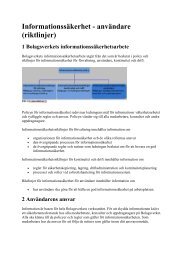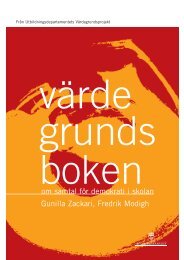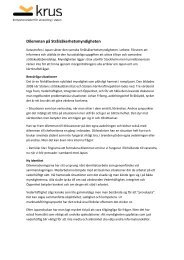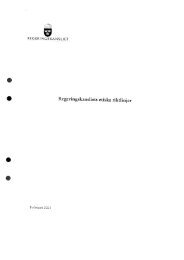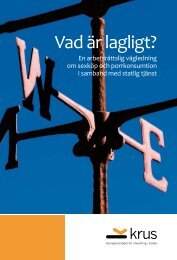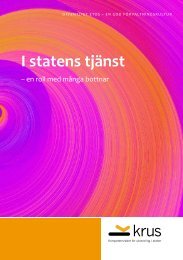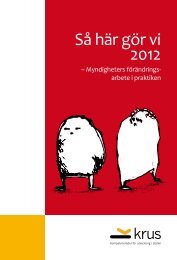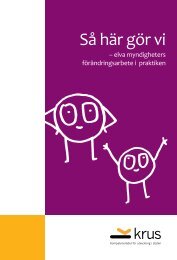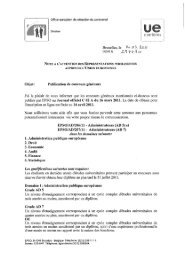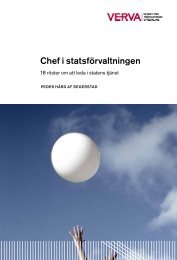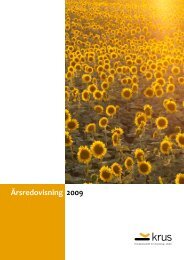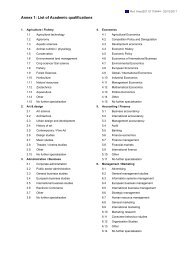Dialogkompetens i skolans vardag - Publikationer - LTU - Luleå ...
Dialogkompetens i skolans vardag - Publikationer - LTU - Luleå ...
Dialogkompetens i skolans vardag - Publikationer - LTU - Luleå ...
You also want an ePaper? Increase the reach of your titles
YUMPU automatically turns print PDFs into web optimized ePapers that Google loves.
558 A.-C. Wennergren and K. Rönnerman<br />
●<br />
●<br />
●<br />
Texts written by individuals and groups concerning the use of tools were read.<br />
Similarities and differences in the data were searched for.<br />
Three different aspects connected to the use of tools were found; tools used individually,<br />
tools used together with a colleague or tool used in the group.<br />
In the following section each of these three aspects are presented, followed by a series<br />
of reflections. As this process has involved co-created knowledge, we are aware of the<br />
problematic situation when two authors have tried to give voice to 50 participants.<br />
The text that follows is based on the cooperative analyses as well as our own concluding<br />
analysis. The written findings have been formulated as ‘thick descriptions’<br />
(Lincoln & Guba, 2002) not in the sense of being long and detailed, but in the sense<br />
that they are as transparent as possible to all readers, not only to the participants. We<br />
have tried to make the text as multi-vocal as possible so as to ensure that the teachers’<br />
voices are present in our texts.<br />
Findings<br />
Tools used individually<br />
Individual writing. Keeping a learning-log may be seen as a form of individual writing<br />
that enables some of the teachers not only to have better access to their own thoughts,<br />
but also gives them an opportunity to return to these for renewed reflections. When<br />
writing, teachers are also formulating their thoughts:<br />
Because I have to formulate my thoughts it is a useful tool. It allows me to go back and<br />
find out more about my thoughts and also ask myself why. It is perfect for analysing the<br />
past and a powerful tool for me. (Teacher D)<br />
As for regular use of the log, the participants’ evaluation of the importance of writing<br />
differed widely. Some discovered a learning medium; some did not bother at all, while<br />
others could not find the necessary motivation.<br />
I have no experience of doing this, it is difficult to find time to write and I can’t see the<br />
purpose of it. (Teacher E)<br />
Because I don’t write continuously it is impossible to find any conclusions. (Teacher A)<br />
Video documentation. This was the second individual tool used. Although the video<br />
camera was not used regularly, all of the participant teachers tried to use it as an<br />
observation tool. While cognisant of the value of an in-depth analysis of a classroom<br />
situation, many added at the same time that it was very time-consuming work.<br />
I would like to use video more, but I can’t find the time. I’m dubious. It demands many<br />
steps; finding a camera that works, a tape, then to watch and analyse. (Teacher D)<br />
In the analysis work they discovered that the reality in the classroom was not<br />
precisely what they had assumed it would be. The participant teachers used the<br />
metaphor of the ‘eye’ as they discovered new possibilities in their analyses, since they



